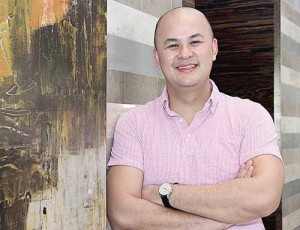On a regular day, young entrepreneur Paul Rivera says he can be seen sipping coffee in a nearby coffee shop while discussing jobs and business strategies with young jobseekers and would-be entrepreneurs. Others may call it mentoring but Rivera says he sees it not only as a way of paying it forward but also as a means to destress and unwind, simply because he enjoys the exercise.
Rivera is one of the founders and CEO of Kalibrr Ventures, Inc., a Philippines-based online job-matching platform that opened recently and promises to change the way companies and young jobseekers alike find the work they want. Rivera explains that Kalibrr—backed up with initial funding of $2 million from both Philippine and US-based investors when it formally launched in April 2015—aims to change the way traditional online job-matching platforms are designed, simply by removing unnecessary fees while at the same time highlighting its skills assessment platform. This unique feature allows employers to determine a candidate’s skill set, which in turn cuts the screening time for companies looking to hire.
Rivera knows the importance of this feature, especially because he personally experienced the frustration of having to sift through numerous applications himself -- a tedious process of hit-and-miss, to say the least. “I first came to the Philippines to open up my own BPO company, and regularly went through this process when hiring employees,” he says. Still, it wasn’t until he had dinner with another Fil-Am schoolmate from UC Berkeley who was visiting Manila that they formed the idea of putting up Kalibrr. “My course was Political Economy, and I actually get to apply some of that because part of the course is economic development,” he says.
The former Silicon Valley junior executive admits the decision to set up one’s own business in a developing country like the Philippines, versus a cushy job in a technology giant such as Google where he worked, does seem a little hard to understand at first. In between sips of coffee, Rivera laughed when asked why he left. He explained that after some time, “I decided I didn’t like big companies. I didn’t like the large company, the structure, and I felt like if I was gonna be there (Google), I would have a very defined path. In my previous job at another smaller tech company, I missed the fact that we could make an impact immediately.”
So less than a year into his Google tenure, Rivera quit and decided he wanted to move back to the Philippines to start a call center company. He recalls his own mother telling him “he must be crazy, and wanted to send me to a psychiatrist,” because mom --like most first generation migrants -- had a jaded recollection and view of the Philippines. Come home he did in March 2007 and along with some business partners opened Open Access BPO at 6750 Ayala Ave., Makati. Looking back at both his investments, Rivera proudly declares that despite numerous challenges, he is thankful that he did and absolutely has no regrets.
Rivera says Kalibrr is looking at very bright prospects for the Philippines and the rest of the region this 2016. Kalibrr currently has more than 7,000 companies using its platform, including some of the country’s largest conglomerates like Ayala Corp. and San Miguel Corp., and about 16 government agencies such as the Bureau of Internal Revenue, Department of Budget and Management and the Department of Finance. Their target market are “Filipino millenials” who are looking for entry to mid-career jobs. Kalibrr currently has about 350,000 job seekers, and is adding about a thousand more per day. Rivera adds that by the end of 2016 there will be a million job seekers and by early next year, he is confident Kalibrr will have surpassed its closest competitor, JobStreet.
The Kalibrr CEO also says he is confident that the Philippines will also be a strong contender in the region’s tech industry. That’s why he stresses the importance of the Philippines retaining its slot as one of the best performing in Asia. As for him, he says things are looking absolutely rosy too. He proudly states that he recently married and is looking forward to raising a family in the Philippines. Since coming home almost nine years ago, he also said he has since become culturally aligned with the country he calls his own, and couldn’t be any happier.


